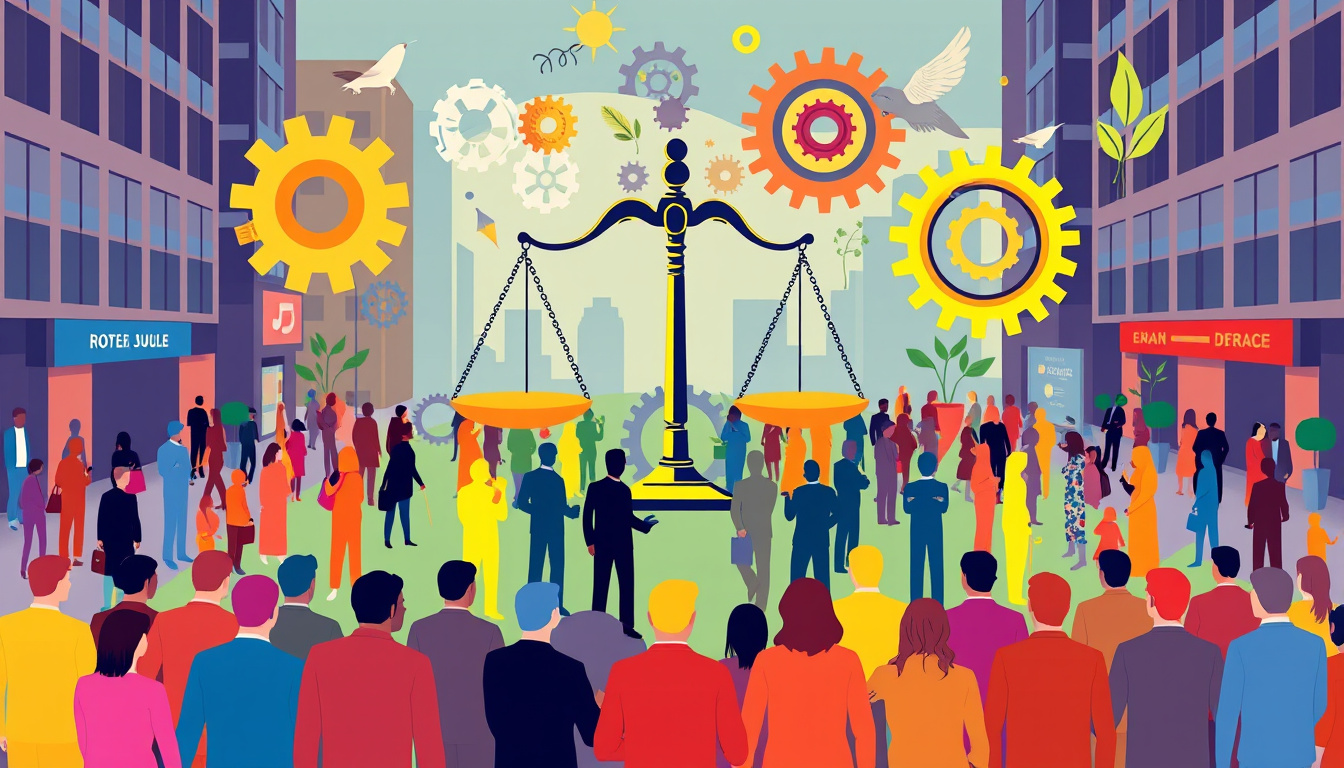
BLOG
In the ever-evolving landscape of hospitality and alcohol service, ensuring responsible alcohol service is more crucial than ever. At the heart of this responsibility lies intoxication training—a vital component that equips servers, bartenders, and managers with the skills needed to recognize and address intoxication effectively. This article explores the significance of intoxication training, offers essential insights for conducting responsible alcohol service, and highlights why investing in this training is beneficial for both establishments and patrons.
Understanding the Importance of Intoxication Training
Intoxication training is a structured educational program designed to help alcohol servers identify signs of intoxication and respond appropriately. It’s not just about preventing alcohol-related incidents; it’s about fostering a safe environment where guests can enjoy responsibly. Proper training ensures staff are aware of legal obligations, recognize early signs of intoxication, and employ techniques to manage over-service effectively.
Why is intoxication training essential? According to the National Institute on Alcohol Abuse and Alcoholism, excessive alcohol consumption can lead to serious health risks and legal consequences for establishments if they fail to serve responsibly (source). Moreover, establishments that prioritize responsible service significantly reduce incidents of accidents, injuries, and liabilities associated with intoxication.
Core Skills Covered in Intoxication Training
Effective intoxication training encompasses several key skills that enable staff to serve alcohol responsibly. Here are the core competencies typically included:
-
Recognizing Signs of Intoxication
- Slurred speech
- Impaired coordination
- Bloodshot eyes
- Unusual behavior or aggression
- Lack of awareness of personal limits
-
Assessing a Customer’s Level of Intoxication
This involves observing behavioral cues and understanding the progression from light to severe intoxication.
-
Communicating with Intoxicated Guests
- Using clear and respectful language
- De-escalating potential conflicts
- Offering alternative non-alcoholic beverages
-
Strategies for Responsible Service
- Cutting off service when necessary
- Offering food and water alongside alcohol
- Managing guest transportation options
-
Legal and Ethical Responsibilities
- Understanding local laws regarding alcohol service
- Documenting incidents of over-service
- Recognizing the establishment’s liability

The Impact of Proper Intoxication Training on Hospitality Industry
Implementing comprehensive intoxication training can lead to measurable improvements within the hospitality industry. These include:
- Increased Guest Safety
- Reduced Liability and Legal Risks
- Enhanced Brand Reputation
- Compliance with State and Local Regulations
- Greater Staff Confidence and Professionalism
Numerous studies confirm that establishments with trained staff are less likely to experience alcohol-related incidents, leading to safer environments for everyone involved.
How to Implement Effective Intoxication Training in Your Establishment
If you’re considering enhancing your team’s capabilities with intoxication training, here are practical steps for implementation:
-
Assess Your Needs
Evaluate your current staff’s knowledge and identify gaps in understanding of responsible alcohol service.
-
Choose Accredited Training Programs
Opt for recognized programs that comply with local laws and industry best practices. Examples include TIPS (Training for Intervention Procedures) and ServerSafe.
-
Conduct Regular Training Sessions
Schedule refresher courses to maintain staff awareness and update them on emerging trends or legal changes.
-
Promote a Culture of Responsibility
Encourage staff to prioritize safety over sales and foster open communication about concerns related to intoxicated guests.
-
Document and Monitor
Keep detailed records of training sessions and incident reports to ensure compliance and continual improvement.
Benefits of Ongoing Training and Refresher Courses
Continuous education in intoxication recognition ensures staff remain vigilant. Regular refreshers reinforce knowledge, adapt to new legal standards, and address emerging challenges such as intoxication from new substances or social behaviors. This ongoing process cements responsible service as a core value of your establishment.
Legal Considerations and Liability Prevention
Failing to provide adequate intoxication training can result in legal repercussions, including fines and license suspensions. Many jurisdictions require alcohol servers to undergo mandatory responsible service training to operate legally. Ensuring your staff are trained aligns with legal standards and demonstrates your commitment to responsible service.
Additional Resources and Tools
For businesses seeking further support or certification, numerous resources are available:
- TIPS (Training for Intervention Procedures) Certification
- ServerSafe Alcohol Responsibility Program
- Local health department guidelines and training modules
Utilizing these tools can streamline the training process and enhance your team’s effectiveness.
Frequently Asked Questions (FAQs)
1. What is intoxication training, and why is it necessary?
Intoxication training is an educational program that teaches alcohol servers to identify signs of intoxication and respond responsibly. It is necessary to prevent over-service, ensure guest safety, and comply with legal obligations.
2. How often should staff undergo intoxication training?
Most industry standards recommend initial comprehensive training followed by annual refresher courses to keep skills sharp and updated with current laws.
3. Can intoxication training reduce legal liabilities for establishments?
Absolutely. Proper training demonstrates due diligence, reduces the risk of serving intoxicated guests, and helps protect your establishment from legal liabilities.
Conclusion
Intoxication training is an indispensable part of responsible alcohol service. It empowers hospitality staff with the skills to recognize early warning signs of intoxication, communicate effectively, and make informed decisions that prioritize safety and compliance. By investing in comprehensive and ongoing intoxication training, your establishment not only aligns with legal requirements but also fosters a safer, more enjoyable environment for guests, staff, and the community at large.
For more information on responsible alcohol service standards, visit the CDC’s Alcohol and Public Health resource (source). Ensuring your team is well-trained can make all the difference in delivering exceptional and responsible service that benefits everyone involved.

BLOG
Rules are an integral part of our daily lives, shaping the way we interact with one another and function within society. At their core, rules serve as guidelines or principles that dictate acceptable behavior and maintain order. Understanding the definition and importance of rules is crucial, as they ensure fairness, security, and harmony within communities. This article delves into the various types of rules—formal and informal—and explores the purposes they serve in society, the processes through which they are created and enforced, the consequences of breaking them, and how the nature of rules has evolved in our modern lives. By examining these aspects, we can appreciate the significance of rules and their role in promoting a cohesive and structured society.

Key Takeaways
- Rules are essential for maintaining order and structure in society.
- There are two main types of rules: formal, which are codified, and informal, which are based on social norms.
- Rules serve various purposes, including promoting safety, fairness, and predictability.
- The creation and enforcement of rules involve government institutions, community agreements, and individual actions.
- As society evolves, so do rules, adapting to cultural shifts and technological advancements.
Introduction to Rules: Definition and Importance
Rules governing our daily lives play a crucial role in maintaining order, ensuring fairness, and guiding behavior within societies and organizations. Defined as explicit or understood regulations or principles governing conduct or procedure, rules can be found in various contexts, from legal frameworks to social norms. The importance of rules cannot be overstated; they provide a structure that allows communities to function cohesively and efficiently. By setting boundaries and outlining acceptable behavior, rules help to prevent chaos and conflicts, facilitating smoother interactions among individuals. In educational settings, for instance, rules foster a conducive learning environment, while in sports, they ensure fair play and competition. Understanding the significance of rules is essential for anyone looking to navigate the complexities of societal interactions and achieve personal or organizational goals.
Types of Rules: Formal vs Informal
When discussing the concept of rules, it’s essential to distinguish between the two primary types: formal and informal rules. Formal rules are explicitly stated and often documented, serving as official guidelines within organizations, governments, or institutions. These rules are unambiguous and enforceable, such as laws, company policies, or school regulations. On the other hand, informal rules arise organically within a community or group, often based on shared values, traditions, or social norms. These might include unwritten codes of conduct or behavioral expectations that guide interactions but lack a formal sanction if broken. Understanding the interplay between formal and informal rules is crucial for navigating various environments effectively, ensuring that individuals can adapt their behavior to meet both legal obligations and social expectations.
‘The rules of society are not laws; they are guidelines to help us navigate the complex interactions of life.’

The Purpose of Rules in Society
In every society, rules serve as essential guidelines that dictate acceptable behavior, ensuring harmony and cooperation among its members. The purpose of rules is not merely to impose restrictions, but to foster a sense of order and predictability in daily interactions. They provide a framework within which individuals can coexist, minimizing conflicts and misunderstandings. For instance, traffic rules regulate the flow of vehicles, preventing chaos on the roads and protecting lives. Similarly, social rules, such as those governing politeness and respect, facilitate smoother communication and stronger relationships. Ultimately, rules are fundamental to establishing a sense of justice and security, enabling citizens to live freely while upholding the values and integrity of their community.
How Rules are Created and Enforced
Rules are essential components of any organized society, governing behavior and ensuring harmony within communities. Understanding how rules are created and enforced provides insight into the framework that maintains order. Typically, rules are formulated through a collaborative process involving lawmakers, community leaders, and stakeholders who assess needs and potential impacts. The incorporation of public feedback during this development phase is crucial for ensuring that the rules reflect the values and expectations of the community. Once established, rules are enforced by designated authorities such as law enforcement agencies, regulatory bodies, or internal organization committees. Enforcement mechanisms can include monitoring compliance, imposing penalties for violations, and providing education about the rules. Overall, the creation and enforcement of rules are fundamental to ensuring that societal standards are met and maintained.

Consequences of Breaking Rules
Breaking rules can lead to a myriad of consequences that impact not only the individual but also the surrounding community or organization. When individuals choose to disregard established rules, the results can range from minor inconveniences to significant penalties, depending on the nature and severity of the infraction. For instance, in academic settings, violating rules such as plagiarism can result in disciplinary actions, while in workplaces, breaches of conduct may lead to termination or legal repercussions. Furthermore, societal rules, which are often unwritten but strongly enforced, can result in social ostracism or a loss of trust among peers. The consequences of breaking rules serve as a critical reminder of the importance of adhering to established guidelines that foster order and safety, ultimately contributing to the greater good within any society.
The Evolution of Rules in Modern Life
The evolution of rules in modern life reflects our society’s changing values and the complexities of human interaction. Rules, which once served as strict guidelines for behavior in communities, have transformed into flexible frameworks that adapt to cultural shifts and technological advancements. In the past, societal rules often mirrored rigid traditional customs, dictating everything from dress codes to social conduct. However, in today’s fast-paced and interconnected world, these rules have evolved to promote inclusivity and creativity. For instance, the rise of digital communication has necessitated new online etiquette rules that address the nuances of virtual interactions. Likewise, as global awareness grows, rules around social justice and environmental responsibility continue to reshape the landscape of acceptable behavior. This shift not only reflects our collective desire for progress but also underscores the importance of understanding the role that evolving rules play in guiding interpersonal relations and fostering community.

BLOG
In today’s fast-paced business environment, understanding renewal timelines is crucial for ensuring smooth operations and maintaining solid partnerships. Whether you are dealing with contracts, subscriptions, or licenses, timely renewals can significantly impact your organization’s efficiency and cost-effectiveness. This article delves into the intricacies of renewal timelines, examining the factors that influence them, the challenges you might face, and best practices to optimize your renewal processes. By mastering these elements, you can ensure your organization remains proactive, rather than reactive, in its renewal strategy.

Key Takeaways
- Renewal timelines are essential to understand for effective resource management.
- Several factors, including market conditions and regulatory changes, can impact renewal timelines.
- Sticking to renewal timelines is crucial to maintain compliance and avoid service interruptions.
- Common challenges in renewal processes include miscommunication and inadequate planning.
- Implementing best practices can streamline renewal timelines and adapt to future trends.
Understanding Renewal Timelines: An Overview
Understanding renewal timelines is crucial for individuals and businesses alike, as they dictate when contracts, agreements, or subscriptions need to be revisited or renewed. These timelines can vary significantly based on the type of agreement in question—be it a lease, insurance policy, or software subscription—making it essential to familiarize oneself with the specifics of each contract. Typically, renewal timelines will include deadlines for notice periods, which are the intervals in which parties must decide whether to renew, amend, or terminate the agreement. By comprehending these timelines, you can avoid costly lapses in coverage or service interruptions, ensuring that all parties involved are aligned on expectations and obligations. Additionally, staying proactive about renewal timelines allows for better negotiations and potential savings, providing a strategic advantage in managing ongoing commitments.
Factors Influencing Renewal Timelines
When it comes to renewal timelines, several key factors come into play that can significantly impact the duration and efficiency of the renewal process. Firstly, the type of contract or agreement being renewed plays a crucial role; for example, commercial leases often have different requirements compared to service agreements or subscription plans. Additionally, the specific terms and conditions outlined in the original contract can also dictate how quickly a renewal can be processed. Other influencing factors include the responsiveness of the involved parties, as timely communication is vital in meeting renewal deadlines. Seasonality can also affect renewal timelines, especially in industries where demand fluctuates throughout the year. Finally, legal and regulatory changes may require modifications to existing contracts, which can also extend renewal timelines as all stakeholders work to ensure compliance. Understanding these factors can help businesses and individuals effectively manage their renewal schedules and avoid unnecessary delays.
‘The key to greatness is to keep your mind focused on your goals, and on renewal timelines in particular—it’s not just about achieving them, but managing the process effectively.’ – Unknown

The Importance of Adhering to Renewal Timelines
Renewal timelines are a critical aspect of managing contracts, subscriptions, and services, as adhering to these timelines can significantly impact operational efficiency and cost management. When organizations miss renewal deadlines, they can face unexpected disruptions in services, potential penalties, or even loss of negotiated rates, which can strain budgets and resources. Furthermore, failure to monitor renewal timelines can lead to lapses in compliance, especially in highly regulated industries, resulting in legal repercussions and diminished client trust. By implementing robust tracking and management systems for renewal timelines, businesses not only safeguard their interests but also foster better vendor relationships and ensure seamless transitions. Ultimately, prioritizing adherence to renewal timelines is essential for any organization striving to maintain operational integrity and optimize their resources effectively.
Common Challenges in Renewal Processes
Navigating the landscape of renewal timelines can present a series of common challenges for organizations. One significant hurdle is ensuring that all stakeholders are aligned on the renewal process, often leading to delays and miscommunication. In addition, organizations frequently grapple with maintaining accurate records for contract renewal dates; missing these dates can result in automatic renewals that are not in line with the organization’s current needs. Furthermore, fluctuating market conditions may necessitate unexpected changes in terms, creating complexities in negotiating renewals within tight timelines. A lack of clarity around these renewal timelines can lead to confusion among team members, potentially impacting the overall efficiency of the process. By addressing these challenges head-on and implementing strategic planning, companies can streamline their renewal processes and ensure that all necessary actions are taken within the prescribed timelines.

Best Practices for Managing Renewal Timelines
Managing renewal timelines effectively is crucial for any organization looking to maintain compliance, foster good relationships with clients, and avoid any interruption in service. To begin, establish a clear calendar that outlines all important renewal dates well in advance, allowing for ample time to review contracts and decide on next steps. Utilize software tools specifically designed for tracking renewal timelines; these tools often send reminders and notifications, helping you to stay organized and proactive. Additionally, it is best practice to communicate with stakeholders early in the renewal process; this ensures that all parties are aware of upcoming deadlines and allows for a smooth transition. Document each renewal process clearly, noting any changes in terms or conditions and maintaining open lines of communication with clients to minimize misunderstandings. By prioritizing these best practices, you can streamline your approach to renewal timelines, ensuring that all renewals are handled efficiently and effectively.
Future Trends in Renewal Timelines
As businesses evolve and adapt to changing market conditions, understanding future trends in renewal timelines becomes essential for effective planning. Renewal timelines refer to the specific periods designated for reviewing, renewing, or renegotiating contracts and agreements. In the coming years, it is anticipated that these timelines will become increasingly dynamic, driven by technological advancements and a growing emphasis on agility in business operations. Companies are likely to leverage data analytics and AI tools to predict optimal renewal periods, allowing for more proactive management of contracts. Additionally, the shift towards subscription-based models and SaaS solutions is expected to further compress renewal timelines, requiring organizations to be more vigilant and responsive. As these trends unfold, organizations will benefit from a strategic approach that aligns renewal cycles with their overall business objectives to mitigate risks and seize opportunities in a competitive landscape.

BLOG
In today’s social landscape, alcohol awareness is more vital than ever. With a variety of drinking options available and cultural attitudes shifting, understanding how to engage with alcohol responsibly can significantly impact personal health, safety, and community well-being. This comprehensive guide will explore essential tips to promote responsible drinking and foster a healthier relationship with alcohol.
Why Alcohol Awareness Matters
Alcohol awareness involves understanding the effects of alcohol, recognizing the risks associated with excessive consumption, and knowing how to enjoy alcoholic beverages responsibly. According to the World Health Organization, harmful drinking contributes to over 3 million deaths worldwide each year, highlighting the importance of promoting responsible drinking habits (source).
By cultivating alcohol awareness, individuals can make informed choices, prevent alcohol-related injuries, and support a safe environment for everyone.
Understanding the Effects of Alcohol on the Body and Mind
Before diving into responsible drinking tips, it’s crucial to comprehend how alcohol impacts your body and brain:
- Impaired Judgment: Alcohol affects the prefrontal cortex, leading to lowered inhibitions and poor decision-making.
- Physical Health Risks: Excessive intake can harm the liver, heart, and brain, and increase the risk of cancer.
- Mental Health Impact: Alcohol misuse can exacerbate mental health issues like depression and anxiety.
Being aware of these effects enables better decision-making around alcohol consumption.
Essential Tips to Promote Responsible Drinking
Promoting responsible drinking involves a combination of awareness, moderation, and proactive measures. Here are key tips to help you and others drink responsibly:
1. Know Your Limits
Understanding your personal alcohol tolerance is fundamental. Factors such as body weight, age, gender, and overall health influence how alcohol affects you. Practice moderation and be mindful of how your body responds to different quantities of alcohol.
2. Set Clear Boundaries
Decide beforehand how many drinks you will have and stick to that limit. A safe guideline is no more than one standard drink per hour, which allows your body time to process alcohol effectively. For reference:
- One 12 oz beer
- One 5 oz glass of wine
- One 1.5 oz shot of distillate
3. Avoid Drinking on an Empty Stomach
Eating a balanced meal before drinking can slow alcohol absorption and reduce intoxication levels. Foods rich in protein and healthy fats are particularly effective.
4. Alternate Alcoholic and Non-Alcoholic Drinks
To control intake, alternate each alcoholic beverage with water or other non-alcoholic drinks. This keeps you hydrated and can help you monitor how much you have consumed.
5. Never Drink and Drive
Impaired driving is a leading cause of accidents and fatalities. Always designate a sober driver, use ride-sharing services, or plan to stay overnight if you intend to drink.
6. Pay Attention to Your Environment
Drink in trusted, safe settings. Be cautious with peer pressure, and remember that it’s okay to decline drinks if you feel uncomfortable or over the limit.
7. Educate Yourself and Others
Enhance both your alcohol awareness and that of those around you by sharing information about the risks and benefits of moderation. Supporting friends and family in responsible drinking can reduce the likelihood of alcohol-related problems.
8. Recognize the Signs of Excessive Drinking
Be alert to signs of heavy alcohol use, such as:
- Loss of control over drinking
- Withdrawal symptoms when not drinking
- Neglecting responsibilities or relationships
- Drinking despite negative consequences
Seeking help early can prevent long-term health issues.
9. Support Organizations and Programs
Many organizations promote alcohol awareness and responsible drinking practice. Participating in community programs, like Alcoholics Anonymous or local health campaigns, can provide valuable resources and support.
10. Implement Workplace and Community Policies
Encourage workplaces, schools, and community venues to adopt policies that promote alcohol awareness, such as limits on serving sizes and responsible beverage service training for bartenders.
Practical Steps to Promote Responsible Drinking in Social Settings
Creating a culture of alcohol awareness requires active participation. Here are practical steps to encourage responsible drinking during social events:
- Offer Alcohol-Free Alternatives: Provide plenty of non-alcoholic beverages.
- Set a Good Example: Model moderation and responsible behavior.
- Plan Safe Transportation Options: Organize designated drivers or ride services.
- Communicate Clearly: Express your boundaries and encourage others to do the same.
- Provide Education: Share facts about alcohol effects and risks.
The Benefits of Alcohol Awareness
Enhancing alcohol awareness brings multiple benefits to individuals and communities:
- Reduced incidence of alcohol-related accidents and injuries
- Improved mental health outcomes
- Better physical health overall
- Stronger social relationships
- Reduced burden on healthcare systems
By integrating alcohol awareness into daily life, we foster safer environments and healthier communities.
Conclusion
Promoting responsible drinking through alcohol awareness is essential for safeguarding health, preventing accidents, and cultivating a culture of moderation. By understanding alcohol’s effects, setting personal boundaries, and supporting others in making safe choices, we can enjoy social occasions without compromising safety or well-being. Remember, responsible drinking isn’t just an individual effort—creating a culture of awareness benefits everyone.
FAQ: Alcohol Awareness and Responsible Drinking
Q1: How can I improve my alcohol awareness to drink more responsibly?
A1: Educate yourself on alcohol’s effects, set personal limits, and be mindful of how alcohol impacts your body. Participating in community programs or reading resources from health organizations can also enhance your alcohol awareness.
Q2: What are some strategies to promote responsible drinking among friends?
A2: Lead by example, suggest non-alcoholic alternatives, establish clear boundaries, and encourage safe transportation options. Open conversations about moderation can bolster collective responsibility.
Q3: Why is alcohol awareness important in reducing alcohol-related accidents?
A3: Alcohol awareness helps individuals recognize their limits and understand the risks of excessive drinking, which reduces impaired decision-making and dangerous behaviors, ultimately decreasing accidents and injuries (source).
For more information on promoting a healthier relationship with alcohol and fostering alcohol awareness, visit reputable sources like the Centers for Disease Control and Prevention (CDC) or WHO’s alcohol and health resources.
Remember: Responsible drinking begins with awareness. Stay informed and make choices that prioritize your health and safety.

BLOG
In the vibrant hospitality landscape of Louisiana, the Responsible Vendor Certification plays a crucial role in ensuring safe and responsible alcohol service. For establishments that have previously obtained this certification, understanding how to renew your Louisiana Responsible Vendor Certification is essential for compliance and continued operation. This article will guide you through the process of renewal, including eligibility requirements, necessary documentation, and common pitfalls to avoid, ensuring that your business remains committed to responsible alcohol service.

Key Takeaways
- The Responsible Vendor Certification in Louisiana is crucial for businesses serving alcohol.
- Eligibility requirements for renewal often include completion of training and no violations.
- The renewal process involves specific steps that must be followed carefully to ensure compliance.
- Proper documentation is essential for a smooth renewal process; be sure to gather all necessary paperwork.
- Maintaining your certification provides significant benefits, including legal protections and improved customer trust.
Understanding the Responsible Vendor Certification in Louisiana
If you are a bar owner or a manager working in Louisiana’s hospitality industry, understanding how to renew your Louisiana Responsible Vendor Certification is crucial for compliance and the success of your business. The Responsible Vendor Program was established to promote responsible alcohol sales and service, ensuring that employees are trained to prevent alcohol-related incidents. To renew your certification, you’ll need to complete a state-approved training program every two years. The renewal process involves proving that you have stayed compliant with Louisiana’s alcohol laws and regulations. It’s recommended to keep track of your certification’s expiration date and begin the renewal process well in advance to avoid any lapses, which can lead to fines or business interruptions. By understanding the steps to renew your certification and ensuring that your staff is well-trained, you not only meet legal obligations but also contribute to a safer community.
Eligibility Requirements for Renewal
When it comes to understanding how to renew your Louisiana Responsible Vendor Certification, it is essential to familiarize yourself with the eligibility requirements that ensure your compliance with state regulations. To maintain this certification, it is crucial for businesses involved in the sale of alcoholic beverages to undergo the renewal process every two years. First, your establishment must have a valid alcohol permit from the Louisiana Office of Alcohol and Tobacco Control. Next, all staff members who have completed the initial Responsible Vendor Training must attend a refresher course to stay updated on the latest laws and responsible service practices. Additionally, your business should have a proven record of compliance with local and state laws regarding alcohol sales and service. By meeting these criteria, you will be well on your way to understanding how to renew your Louisiana Responsible Vendor Certification, ultimately ensuring that your business continues to operate responsibly and legally in the state.
‘The best way to predict the future is to create it.’ – Peter Drucker

Common Mistakes to Avoid During Renewal
When considering how to renew your Louisiana Responsible Vendor Certification, it’s crucial to navigate the process smoothly to avoid common pitfalls that can delay your certification. One of the most frequent mistakes is failing to submit the renewal application on time. The Louisiana Office of Alcohol and Tobacco Control (ATC) typically requires applications to be submitted well in advance of the expiration date, so keeping track of deadlines is essential. Another common error is incomplete documentation; applicants often overlook necessary documents such as proof of employee training or payment receipts. Ensure you double-check your application for any missing information. Additionally, many applicants forget to update their contact information, which can lead to missed communications from the ATC regarding their certification status. Lastly, neglecting to attend the required training or refresher courses before reapplying can result in delays or rejection of your renewal. By being aware of these common mistakes, you can effectively navigate the renewal process and maintain your Responsible Vendor Certification without complications.
Benefits of Maintaining Your Responsible Vendor Certification
Maintaining your Louisiana Responsible Vendor Certification offers numerous advantages that not only enhance your business’s reputation but also ensure compliance with state regulations. One of the primary benefits is the ability to serve alcohol in an establishment legally, which is crucial for bars and restaurants looking to maximize their revenue. Attaining this certification demonstrates a commitment to responsible operations, potentially attracting customers who prioritize safety and compliance. Furthermore, businesses with this certification may receive discounts on insurance premiums as they are considered lower-risk venues. Another significant perk is the protection against legal liabilities in case of incidents involving underage drinking or over-serving. Knowing how to renew your Louisiana Responsible Vendor Certification is essential, as it involves ongoing training and adherence to state guidelines, which refreshes your staff’s knowledge and skills in responsible alcohol service. Regularly updating this certification showcases your dedication to providing a safe environment for patrons, ultimately boosting your establishment’s credibility and attractiveness.















